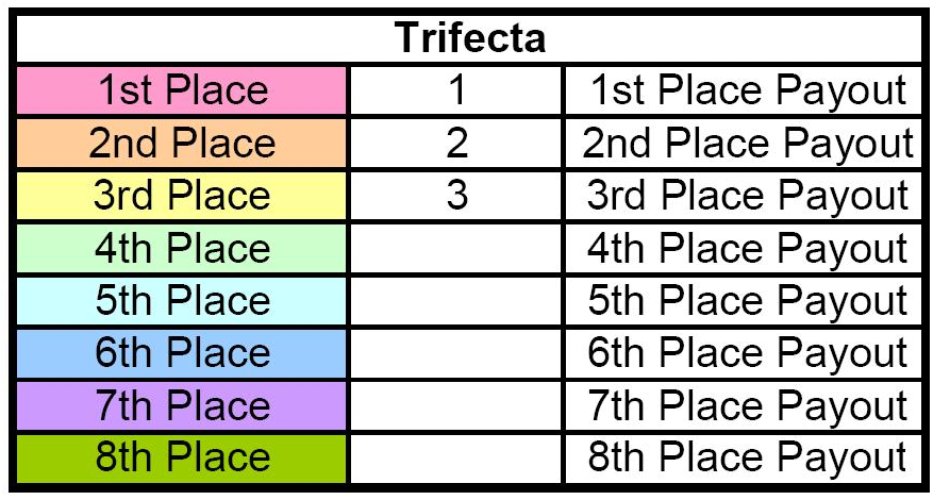
Source: Wikipedia. Article “Trifecta.”
Prevailing Party/Settlement: Goldenwest Plaza, LLC v. The Frank and Gertrude R. Doyle Foundation, Case No. G050766 (4th Dist., Div. 3 Aug. 22, 2016) (Unpublished)
–Split Result Meant No Prevailing Party.
This case was a messy partition case where differing ownership interests with disputes on management of a shopping center brought claims to either partition the property for sale or divide it in kind. In the end, the parties reached a settlement agreement by which one side agreed to buy out the other party for over $2 million but the partition in kind relief was not granted. The settlement agreement gave wide discretion to the trial court to determine if anyone prevailed. Plaintiff won a $2 million buyout, while the defense prevented a partition sale of the shopping center. Both sides moved for attorney’s fees under a contractual clause and under the partition statute. The lower court found no one prevailed, a determination affirmed on appeal. Under the settlement agreement, the lower court did not err by concluding this was somewhat of a “split” result, wrote Justice Fybel in a 3-0 panel decision, such that no side prevailed.
Sanctions: Valtierra v. Weng’s Enterprises, Case No. G051837 (4th Dist., Div. 2 Aug. 22, 2016) (Unpublished)—CCP § 128.5 Does Not Allow Sanctions Against A Party’s Own Attorney Or Former Attorney.
Here, a trial court granted a CCP § 128.5 sanctions award against a client’s attorney for failure to transfer files on a timely basis. The appellate court reversed because section 128.5 does not authorize a trial court to award a party sanctions against its own attorney or former attorney. However, this was not to say there are no other remedies, such as a State Bar complaint or a civil malpractice action. Justice Aronson authored this one.
Retainer Ageement: Bienert, Miller & Katzman PLC v. Patwardhan, Case No. G052667 (4th Dist., Div. 3 Aug. 22, 2016) (Unpublished)—Statute of Limitations For Attorney Fee Collection Does Not Commence Until Attorney-Client Relationship Ends.

“The Twist.” Herman Hiller, photographer. 1962. Library of Congress.
In somewhat of a twist, a third-party payor for a client argued that a law firm sued too late because a four year period lapsed from the receipt of each monthly bill for legal services. Law firm countered that the limitations period expires four years after an attorney ceases to provide legal services to the client, notwithstanding the receipt of legal invoices during the representation. Law firm won based on California decisions—although many described as being “long in the tooth” or “venerable”—holding the SOL does not run until the relationship ends, with any contrary decision meaning the attorney would have to take adverse actions while still representing the client. The twist here was the third-party payor was not a client, but the appellate court—in a decision by Acting Presiding Justice Bedsworth—determined that the result did not change because of this wrinkle given that the client still might be involved in a conflict-ridden fee dispute. Interestingly, the Court of Appeal could find no such statute of limitations case involving a law firm and a client’s third-party payor. So this is an unpublished case of first impression.
